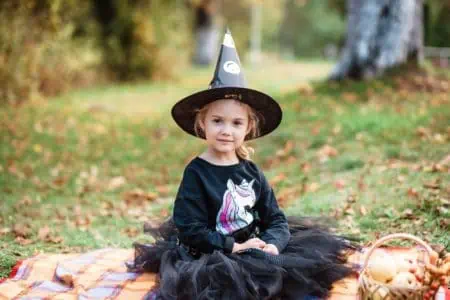Diana is a name of luminosity. Rooted in ancient words meaning “divine” and “sky,” it is inextricably linked to the moon and the hunt. It suggests a child who will be independent, compassionate, and perhaps a bit mysterious.
Verdict: Diana is a sophisticated choice for 2026. It offers an alternative to the ultra-popular “Ana” names (like Ariana or Eliana) while providing the gravitas of a classic. It is perfect for parents seeking a name that everyone knows how to spell but isn’t shared by three other children in the kindergarten class.
Diana Overview
- Meaning: “Heavenly” or “divine”
- Origin: Greek, Latin
- Gender: Diana is a name that is most commonly given to a girl.
- Pronunciation: “DIE-anna” or “DEE-anna.”
- Popularity: In the United States, the name Diana is popular. It was in the top 250 names for girls in 2020, and over 1200 babies were given the name.
- Variations: Daiena, Deanna, Diane, Dijana, Dianah, Dianna, Dyana, Dyanna, Kiana.
- Nicknames: Ana, Di, Dee, Deedee, Nay Nay.
- Namesakes: Princess Diana of Wales, Diana Ross, Diana Vreeland.
What Does the Name Diana Mean?
The name Diana is a masterclass in etymology, referencing the divine light of the heavens. Most dictionaries will tell you it means “divine” or “heavenly,” but the roots go deeper. It derives from the Proto-Indo-European root *dyeu-, which means “to shine” or “sky.” This is the same linguistic root that gave us the word “deity” and the name of the Greek god Zeus.
Therefore, Diana essentially translates to “the bright one” or “she of the daylight sky.” Because of its association with the Roman goddess of the moon, it has also come to represent “luminous,” “celestial,” and “nocturnal light.”
It conveys a sense of power that is not aggressive, but rather radiant. When you name a child Diana, you are associating them with the phrase “comes from the universe” (1), grounding them in something larger than themselves.
Where Does the Name Diana Come From?
Diana is of Latin origin. In ancient mythology, Diana was the Roman equivalent of the Greek goddess Artemis. She was a complex and powerful figure: the goddess of the hunt, the moon, forests, wild animals, and childbirth (2).
Historically, the name had a rocky start in the English-speaking world. The name was seen as pagan by early Christians and Puritans, who avoided it in favor of biblical monikers. It wasn’t until the Renaissance, with its renewed interest in classical mythology, that Diana began to appear in Britain. It fully cemented itself as an English staple in the 19th century and became legendary in the 20th century thanks to the Princess of Wales.
How Popular Is the Name Diana?
Diana is what we call a “timeless classic.” While it is not currently in the Top 10, it has maintained a remarkably steady presence in the US Top 300 for nearly a century.
It reached its zenith in the mid-20th century (specifically the 1940s and 50s), where it was a Top 50 favorite. It saw another massive spike in popularity in the early 1980s following the royal wedding of Prince Charles and Lady Diana Spencer.
Currently, Diana is a “steady” choice. It has cooled off from its mid-century highs, making it a rare gem for modern babies (3). It strikes the perfect balance: it is universally recognized but not overused. You likely won’t find three Dianas in the same classroom, but everyone will know how to spell it.
How Do I Pronounce Diana?
In English, the standard pronunciation is “die-AN-uh.”
However, because the name is used globally, you will frequently hear the softer, romance-language pronunciation of “dee-AH-nah” (Spanish, Italian, German). Both are accepted, though the former is standard in the US and UK.
Is Diana a Boy or Girl Name?
Diana is strictly a feminine name. In Roman mythology, Diana was the divine feminine counterpart to male solar deities.
If you love the sound or meaning but are expecting a boy, consider:
- Daniel: Shares the “Dan” sound.
- Dean: A similar single-syllable punch.
- Apollo: The brother of Diana/Artemis in mythology.
- Lucius: A Roman name meaning “light.”
Variations of Diana
Because of its Latin roots, Diana appears in almost every European language. Here are the most common international variations:
- Daiana (Italian/Romanian)
- Diane (French)
- Dijana (Slavic/Croatian)
- Kiana (Hawaiian)
- Deanna (English variant)
- Dianna (Spelling variant)
- Dayanara (Spanish)
- Dajana (Polish)
Nicknames for Diana
While Diana is beautiful on its own, affectionate shorthands are inevitable.
Common Nicknames:
- Di (The most iconic, famously used by the Princess)
- Dee
- Ana
- Annie
Creative & Rare Nicknames:
- Dia: A modern, snappy option that feels fresh.
- Didi: playful and vintage.
- Artemis: A “secret” nickname referencing the Greek origin.
- Moon: A whimsical nickname referencing the goddess.
Names Similar to Diana
If you enjoy the vibe of Diana, classic, mythological, and strong, but want to explore other options, consider these similar names:
- Helen: Like Diana, this is a classic Greek name with a history of royalty and “light.”
- Julia: Another Roman classic that is timeless and sophisticated.
- Athena: For parents who want to lean harder into the “Goddess” angle.
- Lydia: Shares the soft ending and vintage charm.
- Daphne: A nature-inspired mythological name that feels slightly more modern.
- Victoria: The ultimate counterpart to Diana in terms of royal pedigree.
- Caroline: A safe, classic choice that never goes out of style.
- Camilla: A Roman name with a similar rhythm (though perhaps a controversial pairing in royal history!).
Middle Names for Diana
Diana is a 3-syllable name with a strong vowel ending, so it pairs best with shorter, grounding middle names or longer, lyrical ones depending on the style you want.
Timeless & Royal
These pairings lean into the aristocratic history of the name.
Short & Modern
To balance the vintage feel, try a snappy, one-syllable middle name.
Soft & Floral
Highlight the “Goddess of Nature” aspect with these organic choices.
- Diana Rose
- Diana Lily
- Diana Willow
- Diana June
- Diana Pearl
Sibling Names for Diana
Creating a sib-set for Diana means looking for names that are established and familiar, not trendy or invented.
For a Brother
You want a name that holds its own weight. Look for traditional masculine names.
For a Sister
Sister names should share the same elegance and feminine strength.
Famous People Named Diana
The most famous bearer of this name transformed it from a mythological reference to a symbol of kindness and humanitarianism.
- Diana, Princess of Wales: Known as “The People’s Princess,” she is the most iconic Diana in modern history.
- Diana Ross: The legendary lead singer of The Supremes and a music icon.
- Diana Vreeland: The influential editor-in-chief of Vogue who defined 20th-century fashion.
- Diana Krall: A world-renowned jazz pianist and singer.
- Diana Taurasi: Widely considered one of the greatest female basketball players of all time.
- Diana Rigg: English actress famous for her roles in The Avengers and Game of Thrones.
Diana in Pop Culture
Fiction writers love the name Diana for characters who are strong warriors or sophisticated women.
- Diana Prince: The alter ego of Wonder Woman (DC Comics). This is perhaps the most powerful fictional association, representing justice and strength.
- Diana Barry: The loyal “bosom friend” and best friend of Anne Shirley in Anne of Green Gables.
- Diana Bishop: The witch and historian protagonist in the A Discovery of Witches series.
- Diana: The sarcastic and wise cat advisor in the Sailor Moon anime series.






